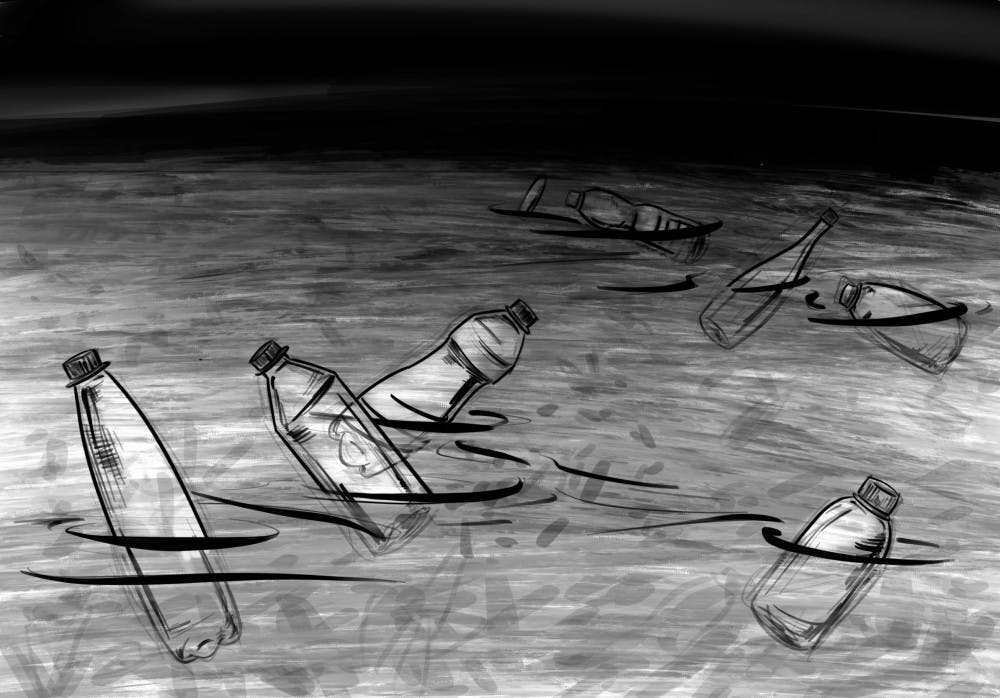The Save Our Seas 2.0 Act, which was introduced by Sen. Sheldon Whitehouse (D-RI), Sen. Dan Sullivan (R-AK) and Sen. Bob Menendez (D-NJ), was unanimously passed by the U.S. Senate Jan. 9. The bill aims to reduce the presence of plastic pollutants in waterways.
The bill follows the success of the Save Our Seas 1.0 Act, also sponsored by Whitehouse, which was signed into law by President Donald Trump in 2018. The first bill, described by Whitehouse as a “test run,” proved that the U.S. Senate was willing to legislate in this area. After it passed, Whitehouse and others who had worked on this first bill began drafting a stronger bill.
“We were still testing the limits of what the Senate would accept by unanimous consent, which was our vehicle, but making the bill much more substantively robust,” Whitehouse told The Herald.
The bill’s goals are three-pronged, according to the senator, and will involve a “foreign relations effort, founded both in the State Department and in our trade, to press for less waste being dumped into the ocean by those countries that are most responsible for it.” Funding will be awarded in the form of a “Genius Prize” to encourage development of new innovations for plastic recycling and disposal. The bill will also “work within our country to look at our infrastructure and make sure that we are addressing that problem of the micro-plastic particles that we are consuming,” he said.
Kurt Teichert, a senior lecturer in environment and society at the University, described the bill as a positive step toward diminishing marine pollution. “Anything that reduces plastics entering the waterways is going to be an improvement for recreational use and marine habitat,” he said. But he cautioned that the bill “has to be coupled with source reduction” in order to be effective.
This sentiment was echoed by Judith Enck, founder of the Beyond Plastics movement and former Environmental Protection Agency regional administrator.
“Rather than requiring a reduction in the generation of plastics, the Save Our Seas 2.0 bill establishes a series of studies, sets up a Genius Prize and authorizes a new foundation which can accept unlimited amounts of money from the very companies that are responsible for the growing problem of plastic pollution,” Enck wrote in an email to The Herald.
Enck helped to coordinate a letter of opposition to the bill which stated the legislation should include concrete methods of reducing overall plastics manufacturing. The letter received signatures from more than 30 environmental organizations and was sent to both Whitehouse and Sullivan.
While activists achieved the removal of a “particularly troubling portion” of the bill concerning a controversial means of plastic disposal, they remain unhappy with the legislation. “It is well intentioned but does virtually nothing to effectively reduce plastic pollution,” Enck wrote.
She added, “the manufacturing of plastic is a major source of carbon emissions, which is why it was surprising to see Senator Whitehouse sponsoring this bill because he is a true climate change champion.”
“I’d be the first to concede, and even argue, there is a lot more that could and should be done,” Whitehouse said. “While we’re waiting for the great day when we control the Senate and the House, and have a president who won’t veto a bill, and we can get a really major piece of plastics legislation passed, it’s still on us to do what we can.”
The unanimous passage of the bill “is a good sign,” Whitehouse said. The bill must now be passed by the House — where he notes “David Cicilline is a cosponsor, as is Jim Langevin, so our two Rhode Island congressmen are helping” — and be signed into law by the president. The senator is optimistic that this will be achieved by the end of the year.
Whitehouse ultimately hopes that the bill will improve the lives of his constituents back at home in Rhode Island. “Every year, Save the Bay, Ocean Conservancy and other groups organize part of the global coastal cleanup,” he said. “I’d like to see a lot less plastic waste in those beach cleanups.”





